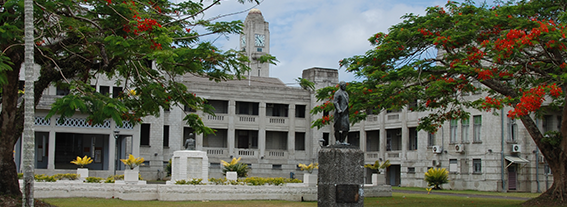
Suva Courthouse

Suva Courthouse
The ODPP recognizes that victims and witnesses play a very vital role in the prosecution process.
There is also a clear role for the ODPP in supporting the roles that victims and witnesses play and we also play a role in their care and management, demonstrated by our continuing commitment to enhance victim and witness support, wherever possible.
Service delivery is prioritized to the more vulnerable group of victims and witnesses such as children and those victims of sexual assaults, family of deceased victims, people with disabilities, the elderly and other vulnerable special needs groups, including those with cultural and language barriers.
The State Counsel are encouraged to assess the special needs of victims and witnesses and to professionally support issues victims and witnesses may have when they deal with our lawyers and while giving evidence in court.
There are clear policies that govern our lawyer’s interactions with victims and witnesses during Witness Conferencing sessions. These policies are articulated in documents such as the Prosecution Code 2003.
The ODPP will ensure that protection available to victims and witnesses under the Criminal Procedure Act, 2009 are applied for and enforced.
The ODPP Prosecutions Code 2003 outlines the approach that State Counsel take when liaising with victims and witnesses of crime.
The code emphasizes core principles such as courtesy, respect and keeping victims and witnesses informed of the case outcomes or trial status, acknowledging their contribution to the case and wherever possible, referring them to relevant authorities for post-case support.
Witness Allowances
Witnesses and victims are paid Witness Allowances to cover some of the expenses of attending and giving evidence in court.